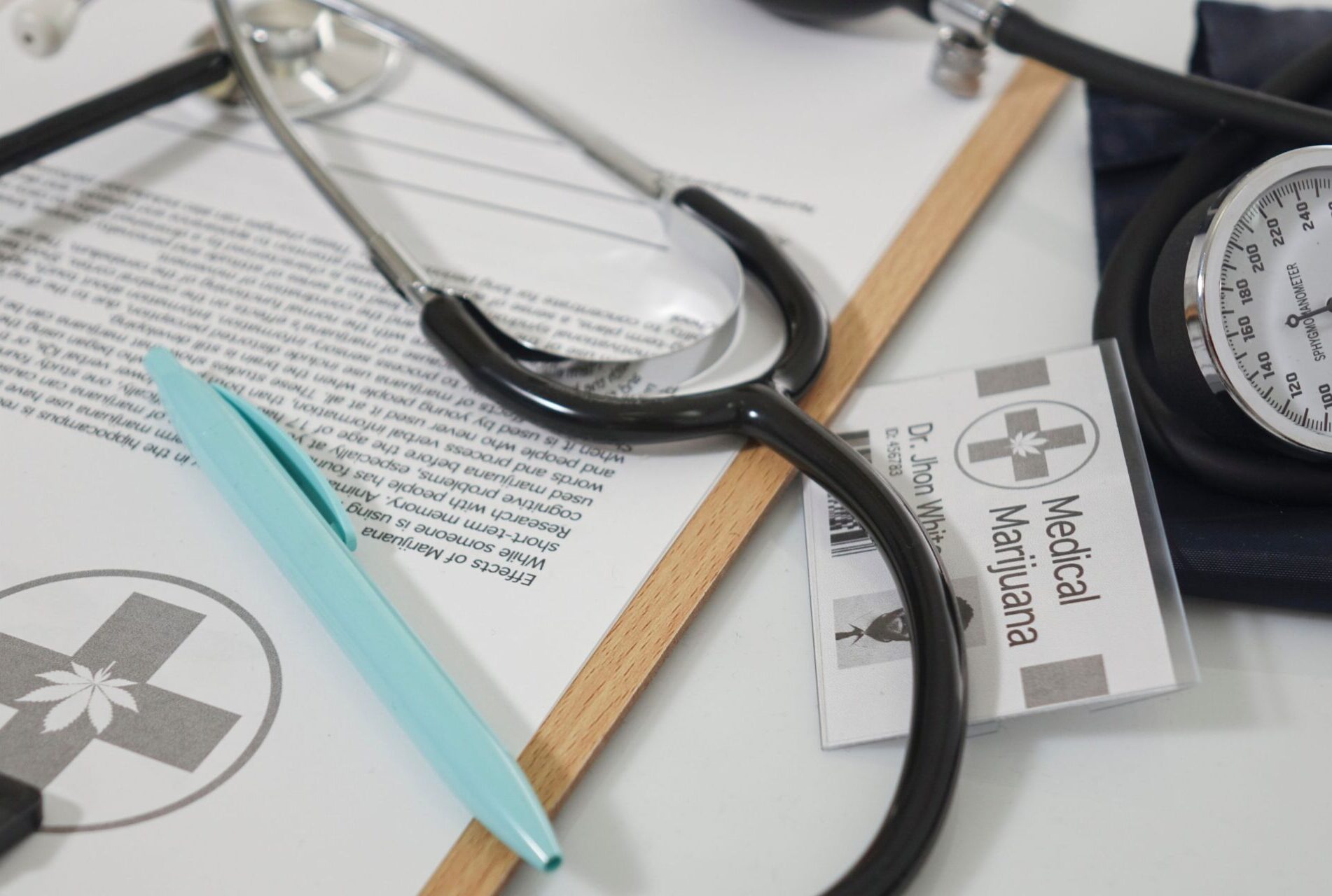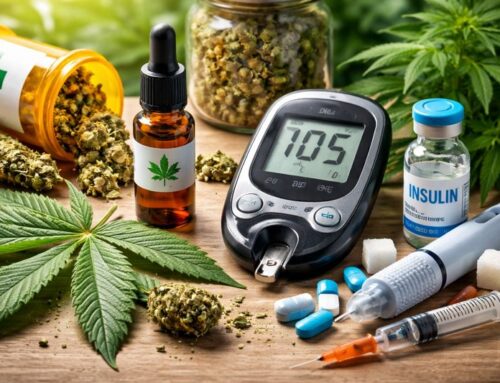Marijuana is one of the most consumed drugs in the world, particularly among people who are suffering from chronic illness. Now, most men and women are using them for sexual benefits. This is worrying because the use of marijuana can have an impact on the reproductive health of both men and women. After all, it disrupts the endocannabinoid system of the brain. We have discussed a lot about how medical marijuana helps in chronic illness, PTSD and anxiety, and in this blog, we will discuss how the use of medical marijuana affects women’s health, its benefits, and its risks.
Introduction
Medical marijuana has been a trending issue in the United States, as it is the world’s biggest consumer of marijuana. We have seen many studies regarding medical marijuana and its health benefits. However, it is still under experimentation to treat various health problems, including persistent pain, anxiety, and female health problems, among others. Many scientific research shows great benefits of using medical marijuana for women, but researchers are also cautious that we should be highly attentive to the consequences on women’s hormones and their overall health.
Endocannabinoid System and female well-being
The endocannabinoid system is the system in the body that controls mood, sleep, pain, gastrointestinal functions, hunger, and hormone levels. It also connects the reproductive system and the nervous system, and that influences the menstrual cycle and the health of the ovaries and the uterus. Once THC (what makes one high) and CBD (the non-psychoactive part) enter the body, they could interact with this system and possibly change the amount of hormones like LH, FSH and prolactin.
Effects of THC On the Female Reproductive
Preconception and Menstrual Cycle Experiments show that taking THC can lower certain hormones in rats and delay ovulation by about a day. In monkeys, using THC for a long time at high amounts caused problems like missed periods. However, after a while, the monkeys went back to normal. This means THC can change hormones and affect how periods work
Usage of assisted reproductive technology (ART) There is a small amount of clinical evidence (primarily from the American College of Obstetricians and Gynecologists) that women who use marijuana at the time of conception, or when undergoing ART procedures like IVF or GIFT, have reduced oocyte pickup and increased pregnancy losses. According to one cohort study, women who smoked marijuana during the twelve months before conception had almost twice the incidence of ovulatory infertility as did non-users.
Smoking of marijuana during Pregnancy
Fetal outcomes Pregnancy outcomes We already know that smoking cigarettes and other tobacco substances is injurious to health, and now the question is whether smoking marijuana is beneficial or another risk. Usage of marijuana during pregnancy and breastfeeding is highly discouraged by Researchers and gynecologists. The reason behind that is that THC can cross the placenta and expose the fetus to this psychoactive substance. Using THC while pregnant can cause babies to be born smaller, with some disability, and earlier than usual. This exposure can also cause some children to have trouble learning or acting in specific ways as they grow up.
Transfer maternal-to-fetal and Infant welfare Lipophilicity of THC enables it to pass the placenta and build up in the tissues of the fetus. It has been found that there is a possibility of THC being passed on to breast milk also, with the long-term effects of lactational exposure yet unknown.
Across the Lifespan: Women’s Health
Period PMS, Cramps Most women claim that the cannabis products can relieve them in terms of dealing with menstrual cramps and PMS, as they relax muscles and reduce inflammation. Others are applying the topical creams or vaginal suppositories to hit the spot of the pain in the pelvis. As long as these positive accounts continue circulating among the population, researchers should conduct more formal tests that would prove that the products are safe and effective.
Hot Flashes to Menopause At times, women in the stage of menopause or already in it resort to smoking cannabis to reduce hot flashes, mood swings, and sleepless nights. Users who claim to realize the benefits are the ones who prefer the products that are rich in CBD. Nevertheless, there are few well-constructed clinical studies to support such claims, and such medical associations as the American College of Obstetricians and Gynecologists have not yet added cannabis to their official lists of recommended medicines to treat menopause symptoms.
Risk, Long Term and Safety
General findings An increase in the usage of cannabis may pose health hazards, particularly when individuals smoke it over several years. Lung damage, heart palpitations, and vomiting are the most frequent side effects observed in the population. Cannabinoid hyperemesis syndrome is experienced by those who consume cannabis regularly because it leads to intensive vomiting. In women who took part in the study, there is a possibility of long-term use of reproductive hormones and the menstrual cycle.
Use disorder and dependence. Other individuals cannot reduce or quit taking cannabis, and they can be diagnosed with cannabis use disorder. This risk can be kicked up a notch by products that contain unusually high amounts of THC, particularly when people consume them daily. Less motivation, increased anxiety, and memory and concentration problems are some warning signs.
Study, Clinical Trials There is a lack of clinical trials devoted to cannabis and women’s health. The majority of the knowledge that we possess is based on animal research studies or on questionnaires in which individuals report their experiences. Due to this fact, the American College of Obstetricians and Gynecologists is demanding additional research studies before cannabis can be widely accepted as a safe medication to use in the treatment of health issues surrounding women.
Overview of Main impacts
What investigations suggest, and what it portends for the health of women
Preconception/fertility THC can cause a delay in ovulation and reduced fertility in some individuals. The possibility of decreased fertility may decrease the chances of natural conception and decrease the effectiveness of ART
Pregnancy consequences: Birth weights are lower, premature births are more common, and there is a risk of neurodevelopmental problems. Consumption of cannabis is forbidden during pregnancy and even while breastfeeding. Other women who experimented with cannabis at the time of their menstrual period discovered that cannabis relieves menstrual period pain and PMS. Still, there is no further evidence that it is true.
In the case of menopause, we have learned that cannabis could be used to treat hot flashes, bouts of moodiness, and sleep disturbance. Still, more information is necessary on the safety and dangers of cannabis.
Long-term use of cannabis may lead to hormonal or respiratory issues, and thus physicians should be alert to such. Research in animals indicates that cannabis can alter the level of hormones and can alter periods or fertility.
Tips for Women Thinking About Medical Marijuana
Think about these before you go reach out to cannabis when dealing with women’s issues:
- There is not a lot of science behind its positive effects.
- It can influence the hormones, ovulation, and fertility.
- The mode of delivery is essential; topical creams do not expose you as much as smoking.
- Start with a small dose and monitor the body’s reaction.
- Discuss with your healthcare team all the time.
Conclusion
Medical marijuana is known to affect the endocannabinoid system of your body. It could alter the levels of hormones and reproductive cycles in women. There are some anecdotal reports that women are relieved of menstrual cramps, PMS and hot flashes, with the most compelling evidence being in animal studies and a handful of small human trials.
As long as there is research going on and there is no hard evidence of benefits of using marijuana for women, we can say cannabis is an unpredictable but potential choice for women. When you decide to use it, please consult a doctor and get more details on its effects, benefits, and risks, particularly in cases where you need to plan a pregnancy or require a long-term remedy.
FAQs
How does marijuana affect women's bodies?
Marijuana can affect a woman’s body in many ways. It may help reduce pain, stress, and anxiety. However, it can also cause side effects like dizziness or changes in mood.
Does marijuana increase testosterone in females?
Some studies show marijuana may slightly raise testosterone in women, but the effect is usually small. It depends on how often and how much is used. More research is needed.
Does marijuana impact female fertility?
Yes, heavy marijuana use might lower fertility in women. It can affect ovulation and make it harder to get pregnant. Occasional use may have less impact, but caution is advised.
Does marijuana affect periods?
Marijuana may affect hormones that control the menstrual cycle. Some women notice changes in period timing or flow, while others see no difference at all.
Is marijuana good for menstrual pain?





